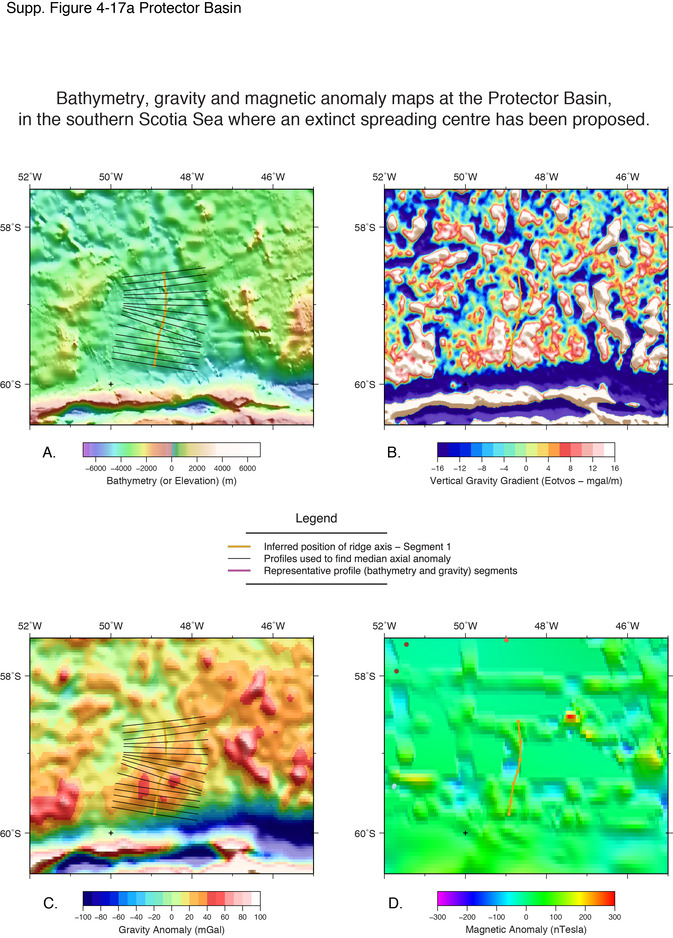| Ocean: | Marginal basin |
| Spreading center type: | Probably small-scale MOR or back-arc spreading centers |
| Time of cessation: | Ca. C7, or C5 (Hill and Barker, 1980) or C11 (ca. 30 Ma) or C19 (Eagles et al., 2006) |
| Subsequent active spreading center: | (?) Central Scotia Sea, Bransfield Strait |
Hill and Barker (1980) reported a sequence of symmetrical magnetic anomalies within the Protector Basin to the south of the Scotia Sea, directly north of the present-day active rift in the Bransfield Strait. The sequence cannot be uniquely identified and was suggested to represent either anomalies C12 to C7 (with half-spreading rate of 19 mm/yr) or C6 to C5 (with half-spread rate 30 mm/yr) (Hill and Barker, 1980). Hill and Barker (1980) observed that sediment cover is 1 km thick and that an axial anomaly could not be located.
Eagles et al. (2006) later suggested an older age for the Protector Basin and that it may predate the western Scotia Sea ridge. They also provide two interpretations of the magnetic anomalies, proposing that the sequence either displays anomalies C21 to C19 or alternatively C13 to C11, assuming a slow-spreading rate of ca. 25 mm/yr.
The proposed extinct ridge axis is a very subdued feature, although a minor negative free-air gravity anomaly is evident at the ridge axis that is flanked by symmetric, elongate positive free-air gravity anomalies that are oriented parallel to the inferred spreading axis.
Eagles, G., Livermore, R. and Morris, P., 2006, Small basins in the Scotia Sea: The Eocene Drake Passage gateway, Earth and Planetary Science Letters, v. 242, no. 3-4, p.343–353.
Hill, I.A. and Barker, P.F., 1980, Evidence for Miocene back-arc spreading in the central Scotia Sea, Geophysical Journal International, v. 63, no. 2, p. 427–440.


